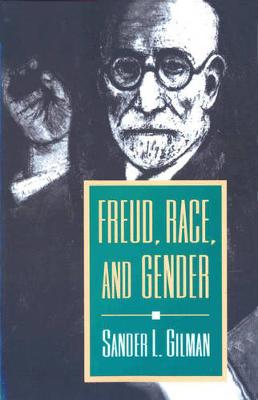As a Jew in an anti-Semitic world, Sigmund Freud was forced to cope with racism even in the "serious" medical literature of the fin de siecle, which described Jews as inherently pathological, sexually degenerate and linked in special ways with syphilis, insanity and certain types of cancer. Did Freud's internalizing of these images of racial difference shape the questions of psychoanalysis? Here, Gilman argues that Freud dealt with his anxiety about himself as a Jew by projecting it onto other cultural "inferiors" - such as women. In Freud's writings, pejorative distinctions between Aryan males and circumcised Jews found in the medical literature of his day are inscribed on the bodies of women, and beliefs about the difference of the male Jew are paralleled by claims about the otherness of the female. Examining a variety of 19th- and early 20th-century scientific writings, Gilman discusses the prevailing belief that male Jews were "feminized", as stated outright by Jung and others. In Vienna, Freud's image of himself as a powerful, neutral scientist seemed to combine with a wish to subsume Jewishness under the more accepted, "included" (but second-class) status granted to women.
And if hysteria and neurasthenia were said by the medical authorities of the time to affect male Jews in particular, paranoia and homosexuality came to be seen by Freud (and other Jewish physicians) as the illnesses of male anti-Semites. The attribution of derogatory meanings to pathological phenomena extended to organic disease. This book ends by examining Freud's reaction to this question when he became a patient himself, with cancer of the jaw. Throughout, the work explores Freud's complex reaction to the medicalization of concepts about race, as revealed in his informal comments and letters, as well as in the rare overt references to those ideas in his published writing. Challenging those who separate Freud's theoretical creativity from his sense of being Jewish, this view of the beginnings of psychoanalysis should interest historians of medicine, as well as a broad range of readers concerned with Jewish studies, gender studies, literature and the intellectual and cultural history of the fin de siecle.
- ISBN10 0691032459
- ISBN13 9780691032450
- Publish Date 21 June 1993
- Publish Status Out of Print
- Out of Print 8 October 2001
- Publish Country US
- Imprint Princeton University Press
- Format Hardcover
- Pages 290
- Language English
- URL https://press.princeton.edu/titles/5308.html
